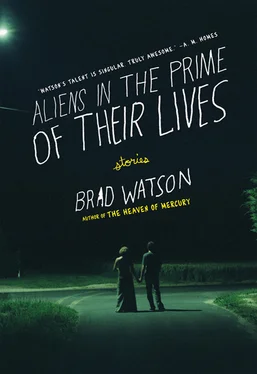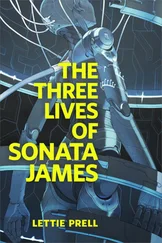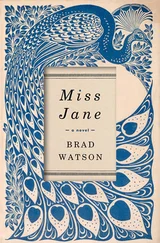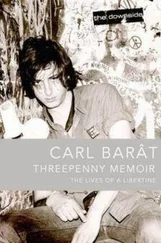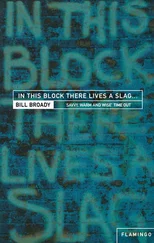Beyond the tall, broad, hoary dunes, surf popped and crushed on the beach’s gentle slope, but she could not see or hear it. She would never see or hear it again. She must have been out there earlier, though, judging by the slightly damp sand between her crimped toes, and the skimpy flowered swimsuit she wore, nothing but three little patches and a couple of strings, a suit for a younger, firmer woman. She wasn’t fat or homely or ugly, just not as fit and pretty as she must have been, once. Her skin looked tired, a little weather-worn, a sallowness her tan didn’t quite disguise. Her mouth had begun to pinch up a bit. Her nose a little veiny, red. You’d almost mistake the small black hole in her forehead for a browsing insect or a tiny smudge. The wound on her shoulder, which had been gnawed tentatively by some small animal, the blood congealed and darkening, would be somehow more disturbing at first, until the notion of what really happened here began to sink in.
Hard to tell about her age, seeing her like this. She was one of those people anywhere between thirty-two and fifty. You just guessed she probably lived life hard. She looked stunned, now, by its swift departure, hard pale blue eyes staring up at the scarcely drifting horsetail clouds that resembled the kind of hairpiece girls wore in the sixties, when she’d have first dreamed of dating boys from the high school, the older boys who populated her fantasies of being older and freed from the humiliation of being a powerless, sexless child. She would have shadowed them already by the time she was twelve, younger than the other bad girls but bolder, too, and that only made her more attractive, dangerous. She was maybe a girl who would act on a dare. A wild girl who’d reach out the window of the car and snatch a flying bug from the air and put her small, buzzing fist, with its ragged chewed nails at the ends of little soiled fingers, right up to your ear. She’d put her tongue in your ear while you were driving seventy on a two-lane. Her tongue in your ear and her hand on your cock, daring you to lose control.
A fall. That’s what they called the hairpiece back then. Pinned it on their crowns and let the long lock fall away down the back. She’d sat on the bed in the room she and her mother shared at Grandmama’s house and watched her mother pin one to the top of her head, pouf it up, turn her head this way and that in the mirror to check it out. And then pecked her on the cheek and left with that man, whose name was Porter something. Longest date she’d ever heard of. A postcard arrived from Missouri, a snapshot from Oklahoma, twenty dollars from some little town in Washington State. Her mother sent a finger-length lock of her hair. Some fingernail clippings, for some odd reason, faded red hard and dry thick crescents. Her Alabama driver’s license, expired. Good riddance, her grandmother finally said one night, tired of hearing Nellie cry. Get her out of your system like a piece of bad meat, she’s my child but was never any good, we’re better off this way, just think of me as your mama and grandmama, too, I ain’t going nowhere, I’m tough as an old pine knot, I am.
Grandmama didn’t turn on her or give up when she started acting just like her mama had, going wild with boys, with booze, with pills, with weed, and generally trashy acting out. She was one of those girls at the Hangout, public beach, always jumping into this car or that, going off, coming back, jumping in, jumping out, a cold can of this or that in her hand, Schlitz, Busch Bavarian. She was nothing but a little Hangout whore. She despised those goody little Fairhope boys, those Montrose boys, all those boys in their daddies’ cars with good weed and folding money and so much time on their hands, boys who rode around shouting about pussy, calling it that, whispering, Please, Nellie, gimme a little pussy. She came on strong and turned the tables, made them fear their own desire, watched them slink back to their corsaged sweethearts who left their middle fingers smelling like moist talcum powder and Massengill’s douche. She, baby, was a day-old oyster, she was a steamed mollusk on their tongues, made them go down where their little peckers would go, poking about inside their jeans like blind puppies after the teat, and it was only her they breathed in that closeness, no powder, no perfume, the heavy slick and salty firmness they never expected. She held them there with strong thumb and finger-knuckle by their large, soft, voluted ears.
Her grandparents’ cottage back on the bay, made of heart pine her grandpapa milled and nailed together in ’26, just after the hurricane that year, that sealed itself with heart sap so you couldn’t drive a tenpenny nail into it now, it was like iron, the pictures on the walls had never been moved because no one could even tap a little tack between the grains, and it stood through more than half a dozen hurricanes since, and dozens of tropical storms. Doors and windows battened, she and Mama and Papa, her grandparents, sat in the living room, Papa smoking his pipe, Mama quilting or shelling beans, she sitting with her knees pulled up and painting her little watercolors on a piece of paper in a sketchbook, all the tourists fled like the deer to high ground. Not she and Mama and Papa, though, as God willing you didn’t leave home for a gale. She, Nellie, wasn’t afraid of the weather, it made her excited. She touched herself sometimes during storms. She painted her pictures of birds blown awry by the gale in trees bent double and leaves ashriek, birds tumbling like blasted feathery leaves in the howling winds. Frederic got no more than part of the roof in ’79, though whole pieces of other homes, gables and porches, hung in the live oaks around the house like they’d rained down from bomb blasts, dunes on the Gulf side mostly gone except in the wildlife refuge, where she lay now.
But she’d been well gone from their home by then, hadn’t lived there since that previous spring, a few months after her grandpapa passed away, when she’d walked off from Foley High one day, got into Melvin’s Corvette, and never went back. Melvin had the good stuff then, redbud, quaaludes, they had a good time. Spent the summer in his parents’ cabin on Bay La Launch, nobody there but fishermen and retirees percolating into death. They sold Melvin’s boat to a boy from Bay Minette who believed he could make a living shrimping. No one believed that anymore. No one knew that better than her, it was what her grandpapa had done all his life until it wasn’t possible for even someone such as him to make it work smalltime anymore.
After Melvin’s father kicked them out and Melvin insisted on going ahead to Wisconsin without her, said he would grow cannabis tall as corn and bring her up when the growing got good and he’d made some money, she tended bar at Top o’ the Port, lying about her age, and did tricks with conventioneers when the Passport Inn was still the only real hotel on the beach, before they built the center at the state park. Old boys there with aluminum siding, fertilizer, sod operations — Arcus, Kaarrrl , Buck, Oliver — hogfat, sawtoothed, streak o’ lean. Boys getting thick and heavy-necked. They thought her a hot beach babe all right, with her tan and bleached hair and hard blue eyes the color of the slick cold clay the poor women ate in the country up near White House Fork. Her aunt up there was one of them, still ate the stuff about once a month, and Nellie’d fetched it for her more than once, in a little paper sack her aunt gave her, saying, Here, hon, go fetch me some dirt out of that bank back of the house. About all there was to do up at her aunt’s, where they sent her when she wouldn’t stay out of the Gulf, riding the riptide way on out, fearless, a tiny white naked body with a bushel of wild black hair, just a speck out there and them screaming on the beach, but she never feared the water. She tried eating the clay once, a bland cold confection with only the mild stink of the earth about it. Auntie had a craving for it. She, Nellie, shuddered at the thought, as if it were a craving for the grave, to eat and become what she came from, hard cold clay and forgotten forever. You are what you eat! Auntie said, baring her yellow canines with her deep, hoarse laugh.
Читать дальше
